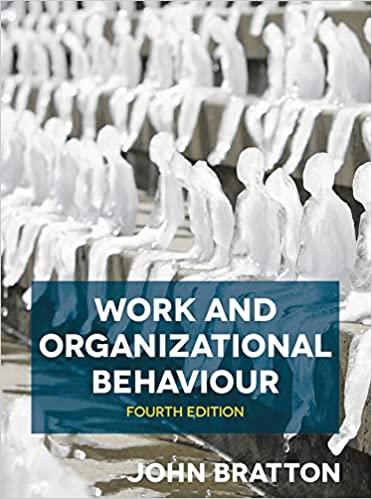2. In small groups, discuss the following: a. What other reasons do you see in the case...
Question:
2. In small groups, discuss the following:
a. What other reasons do you see in the case study which might contribute to women not being equitably represented in leadership roles?
b. What can you suggest organizations do to address these? As in other Scandinavian countries, Denmark’s working mothers are not only provided with subsidized childcare but also a generous parental leave entitlement. However, Denmark ranks a low 80th in the world on the World Economic Forum’s gender gap in leadership scale, and only 15 per cent of directors and 19 per cent of board members at Danish companies are women. Danish women are not unusual in that they often prioritize their children’s needs over career opportunities and, as a result, work part-time and in jobs with less probability of advancement. As is true anywhere, employers can be wary of hiring or promoting women who can take extended leave. So why does Denmark suffer from such gender inequity compared to other Scandinavian countries which have similar social welfare benefits?
There are other factors unique to Denmark. Of the 52 weeks provided for parental leave, new mothers are guaranteed 18 weeks of full pay, while fathers are guaranteed 2 weeks, with the remaining time partially paid. This typically results in the woman taking all or most of the leave: 300 days on average, compared to just 30 days among men, which is far less than men take in other Scandinavian countries. Compounding this financial pressure is the social stigma in Danish society associated with men who choose to take parental leave and a belief of many women that it is their privilege or right to take the time to care for their children.
Denmark has taken steps to increase female representation in leadership roles. In 2013, the Act on Gender Targets was implemented, requiring the country’s largest private companies to set targets, establish policies to recruit and develop female managers, and to report on results. Most recently in 2019, the Ministry for Gender Equality announced a new initiative with Copenhagen Business School and seven recruitment firms that required a minimum of 33 per cent of candidates put forward by the firms to be women. The initiative also aimed to increase awareness of subconscious or unintended prejudices which could influence the recruitment process.
Step by Step Answer:







